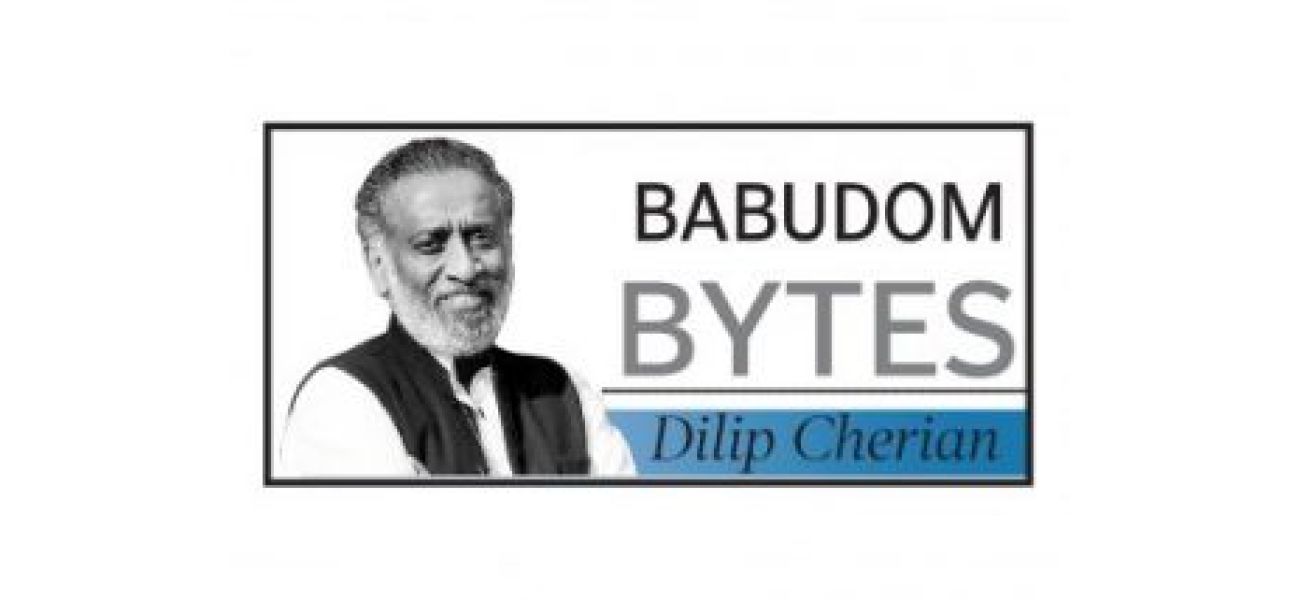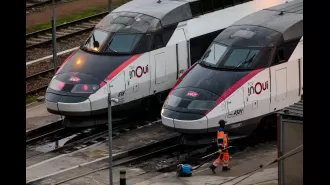Bengal's Power Play is a strategy game where players must strategically manage resources and make decisions to gain power and defeat their opponents.
West Bengal's move to create its own panel for selecting the DGP is a strategic move, asserting state power over the Centre and joining other states in choosing their own police chiefs.
April 19th 2025.

The recent decision by West Bengal to establish its own selection committee for appointing the Director General of Police goes beyond just a bureaucratic adjustment - it holds significant political implications. By bypassing the need for approval from the central government, Bengal joins the ranks of Punjab and Uttar Pradesh in asserting that states have the authority to select their own police chiefs without interference from Delhi. It is interesting to note that this sentiment is shared by three states with varying political ideologies - AAP, BJP, and TMC - all coming together to advocate for a stronger federal structure.
However, this move was not made overnight. Bengal has been operating with an acting DGP for several months now, and with little progress from Delhi, the Mamata Banerjee government has taken matters into their own hands. The new process will involve a panel formed by the state, likely led by the Chief Secretary and Home Secretary. This, however, may pose a challenge to the 2006 Supreme Court ruling in Prakash Singh vs. Union of India, which aimed to protect police appointments from political interference by involving the UPSC. The states now argue that it is the central government that is meddling in these appointments, not the state governments.
This development raises questions about whether this is the beginning of a truly cooperative federal structure or a gradual shift towards conflicts between the Centre and the states. Regardless, it is a compelling case to test the autonomy of states and could potentially reshape the balance of power between the central government and state governments in India. It is not just about appointing a DGP, but it also raises questions about who holds the power to make appointments and who has the authority to push back.
In other news, a long-standing battle between the Delhi Administrative Subordinate Services (DASS) officers and the Delhi, Andaman and Nicobar Islands Civil Services (DANICS) officers has now reached its boiling point. The DASS officers, who have been managing the daily administration of Delhi since 1967, have finally taken their grievances to the Union Home Secretary. They are hoping for a resolution to the issue of 217 posts that were supposed to be allocated to them after a Delhi High Court ruling last year. However, the DANICS officers have challenged this order in the Central Administrative Tribunal, claiming that the posts are rightfully theirs. This has once again brought the debate about the hierarchy within the administrative system to the forefront.
Sources indicate that the DASS officers, exhausted from over five decades of stagnation, are leaving their posts at a rate of 100 per year due to lack of restructuring, promotions, and a clear career path. It is not just about the number of posts, but also about the respect, growth, and a system that seems to overlook the backbone of the administration. The DASS officers have accused a few DANICS officers of intentionally obstructing their progress by delaying service rules and blocking post notifications. With a new government in Delhi and the matter now at the gates of North Block, this internal feud is finally receiving national attention. One would hope that it will be easier to resolve for a government that boasts of having a "double engine" in power.
The issue of cadre allocation has been a nightmare for officers ever since the bifurcation of Andhra Pradesh and Telangana in 2014. The case of Siva Sankar Lotheti, who has been tossed between states due to conflicting CAT orders and an indecisive DoPT, has become a prime example of the chaos in the bureaucratic system. However, Lotheti is not the only one facing this dilemma. Several other officers are being shuffled between states, causing disruptions in their careers and personal lives. This not only affects the officers but also hinders the smooth functioning of governance. The courts have attempted to resolve this issue, but they are limited by a flawed allocation policy that was hastily created during the bifurcation and has proven to be impractical now.
The central government's lack of action only adds to the problem. When officers do not have a clear idea of where they will be posted, it becomes difficult for them to focus on their duties to serve the public. While Telangana and Andhra Pradesh have moved on politically, the bureaucratic system is still stuck in the past. A lasting solution to this issue will require more than just orders from the CAT and tweaks from the DoPT. It calls for a political reset that recognizes officers as individuals and not mere pawns in a game. Until then, the aftermath of the bifurcation will continue to affect the bureaucracy, hindering their ability to serve the people effectively.
However, this move was not made overnight. Bengal has been operating with an acting DGP for several months now, and with little progress from Delhi, the Mamata Banerjee government has taken matters into their own hands. The new process will involve a panel formed by the state, likely led by the Chief Secretary and Home Secretary. This, however, may pose a challenge to the 2006 Supreme Court ruling in Prakash Singh vs. Union of India, which aimed to protect police appointments from political interference by involving the UPSC. The states now argue that it is the central government that is meddling in these appointments, not the state governments.
This development raises questions about whether this is the beginning of a truly cooperative federal structure or a gradual shift towards conflicts between the Centre and the states. Regardless, it is a compelling case to test the autonomy of states and could potentially reshape the balance of power between the central government and state governments in India. It is not just about appointing a DGP, but it also raises questions about who holds the power to make appointments and who has the authority to push back.
In other news, a long-standing battle between the Delhi Administrative Subordinate Services (DASS) officers and the Delhi, Andaman and Nicobar Islands Civil Services (DANICS) officers has now reached its boiling point. The DASS officers, who have been managing the daily administration of Delhi since 1967, have finally taken their grievances to the Union Home Secretary. They are hoping for a resolution to the issue of 217 posts that were supposed to be allocated to them after a Delhi High Court ruling last year. However, the DANICS officers have challenged this order in the Central Administrative Tribunal, claiming that the posts are rightfully theirs. This has once again brought the debate about the hierarchy within the administrative system to the forefront.
Sources indicate that the DASS officers, exhausted from over five decades of stagnation, are leaving their posts at a rate of 100 per year due to lack of restructuring, promotions, and a clear career path. It is not just about the number of posts, but also about the respect, growth, and a system that seems to overlook the backbone of the administration. The DASS officers have accused a few DANICS officers of intentionally obstructing their progress by delaying service rules and blocking post notifications. With a new government in Delhi and the matter now at the gates of North Block, this internal feud is finally receiving national attention. One would hope that it will be easier to resolve for a government that boasts of having a "double engine" in power.
The issue of cadre allocation has been a nightmare for officers ever since the bifurcation of Andhra Pradesh and Telangana in 2014. The case of Siva Sankar Lotheti, who has been tossed between states due to conflicting CAT orders and an indecisive DoPT, has become a prime example of the chaos in the bureaucratic system. However, Lotheti is not the only one facing this dilemma. Several other officers are being shuffled between states, causing disruptions in their careers and personal lives. This not only affects the officers but also hinders the smooth functioning of governance. The courts have attempted to resolve this issue, but they are limited by a flawed allocation policy that was hastily created during the bifurcation and has proven to be impractical now.
The central government's lack of action only adds to the problem. When officers do not have a clear idea of where they will be posted, it becomes difficult for them to focus on their duties to serve the public. While Telangana and Andhra Pradesh have moved on politically, the bureaucratic system is still stuck in the past. A lasting solution to this issue will require more than just orders from the CAT and tweaks from the DoPT. It calls for a political reset that recognizes officers as individuals and not mere pawns in a game. Until then, the aftermath of the bifurcation will continue to affect the bureaucracy, hindering their ability to serve the people effectively.
[This article has been trending online recently and has been generated with AI. Your feed is customized.]
[Generative AI is experimental.]
0
0
Submit Comment





